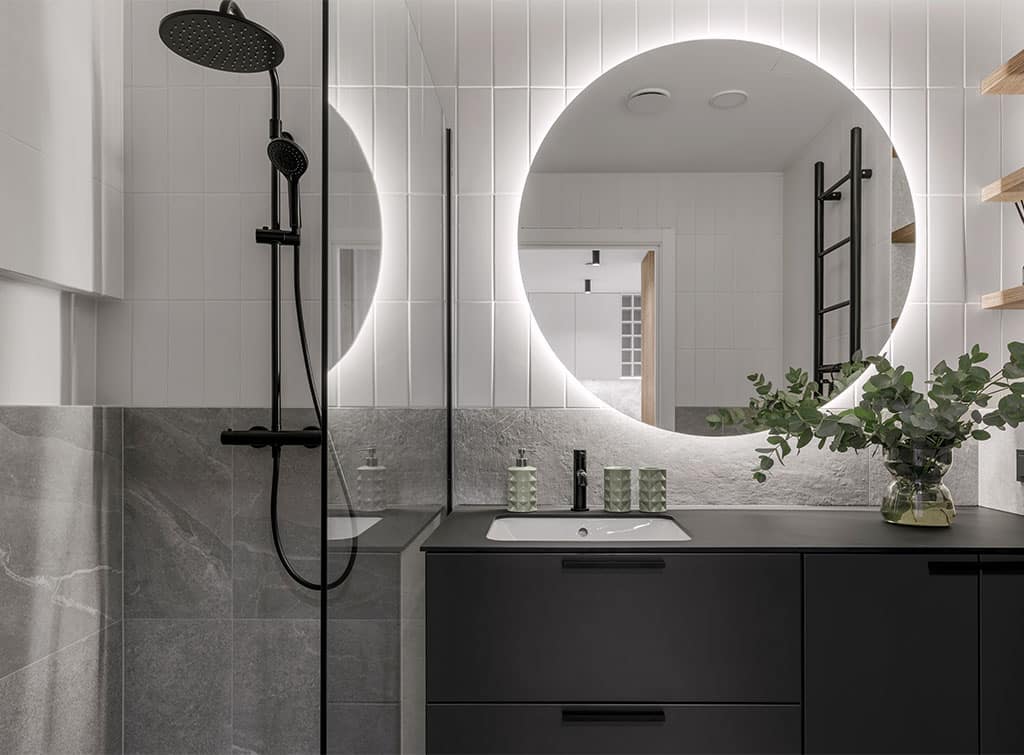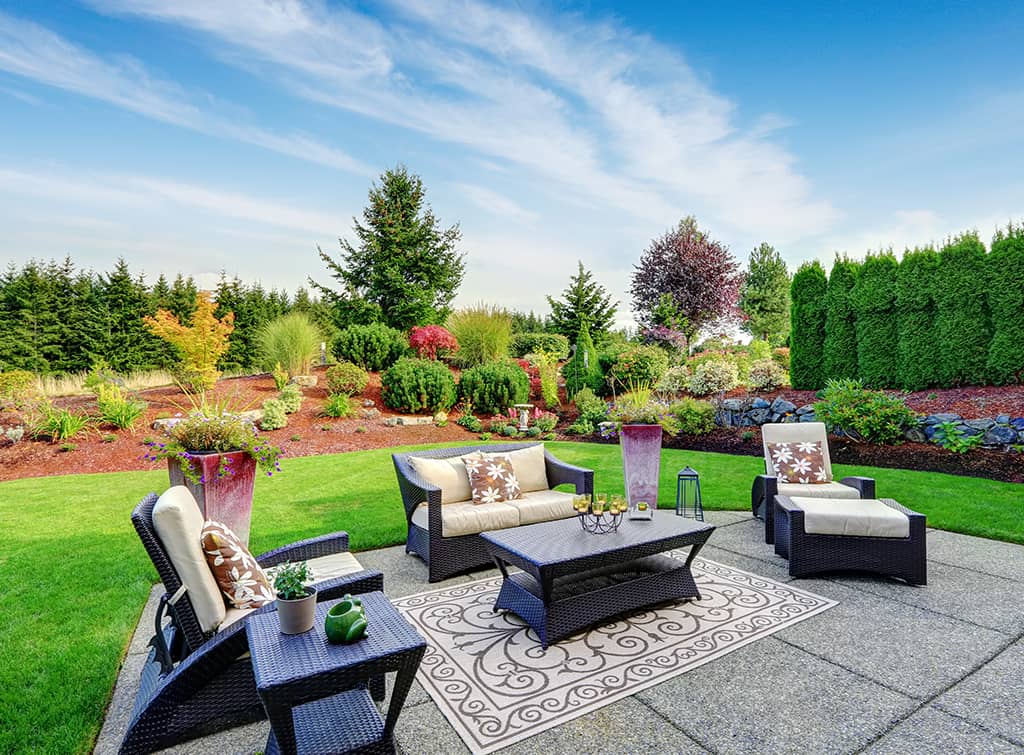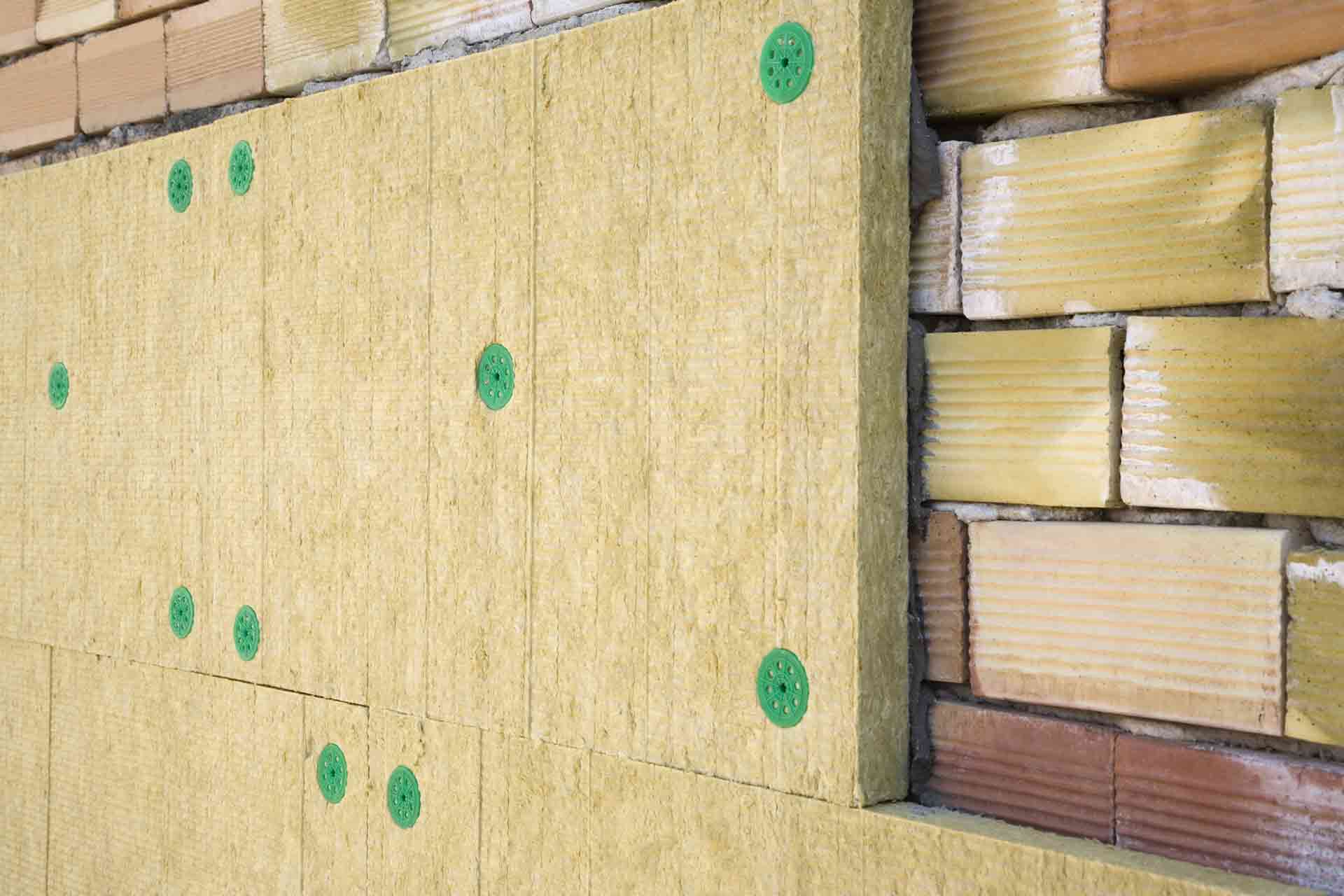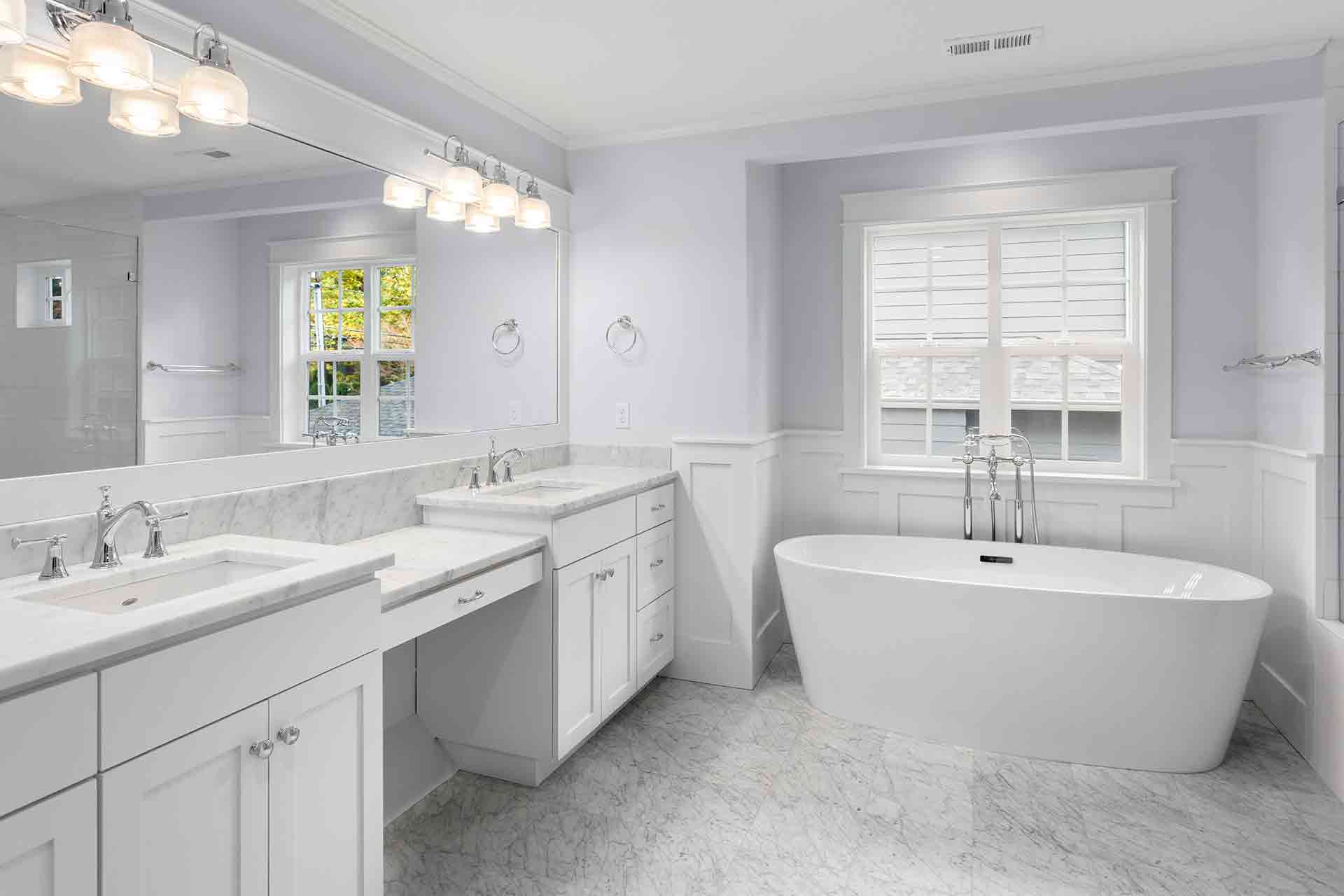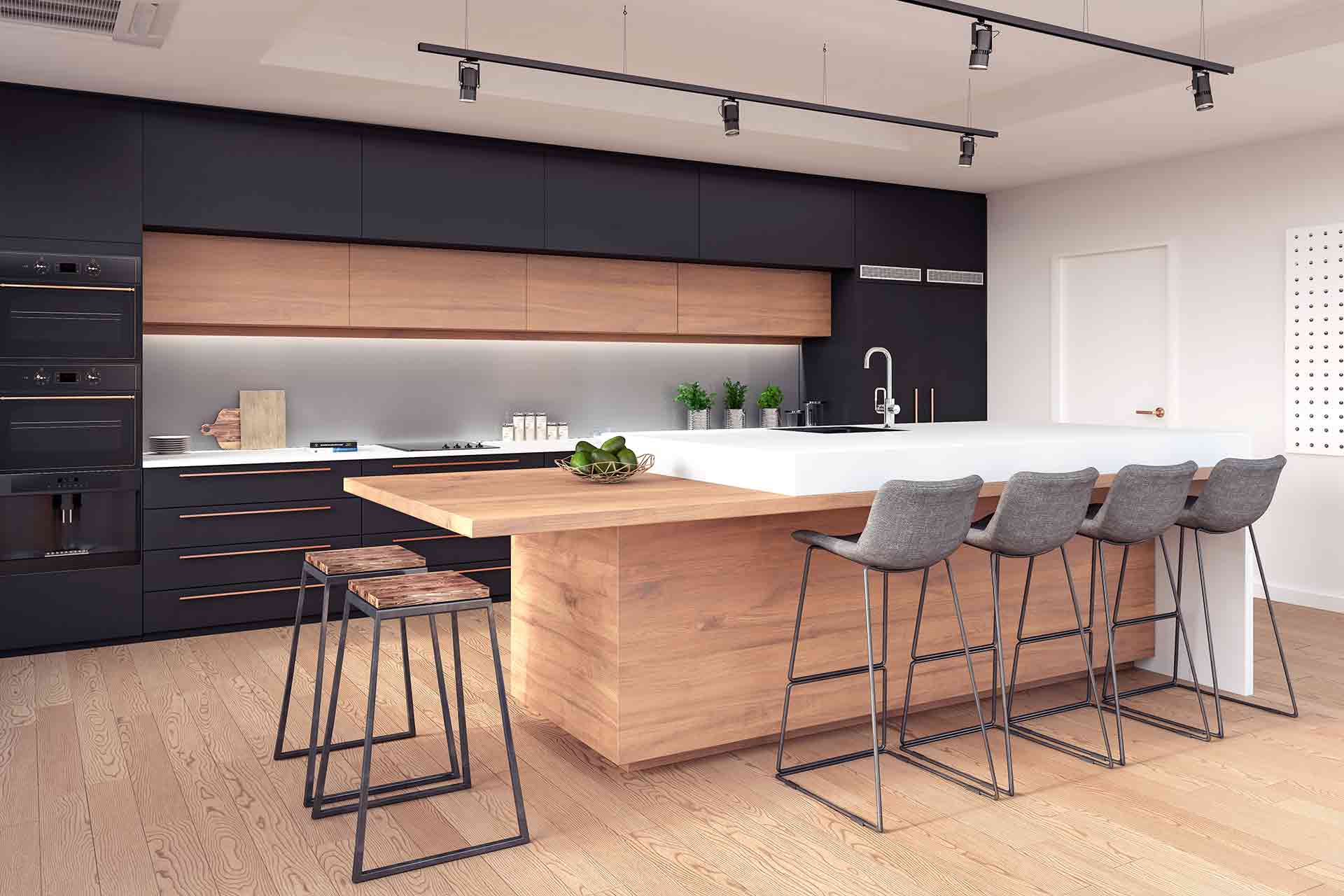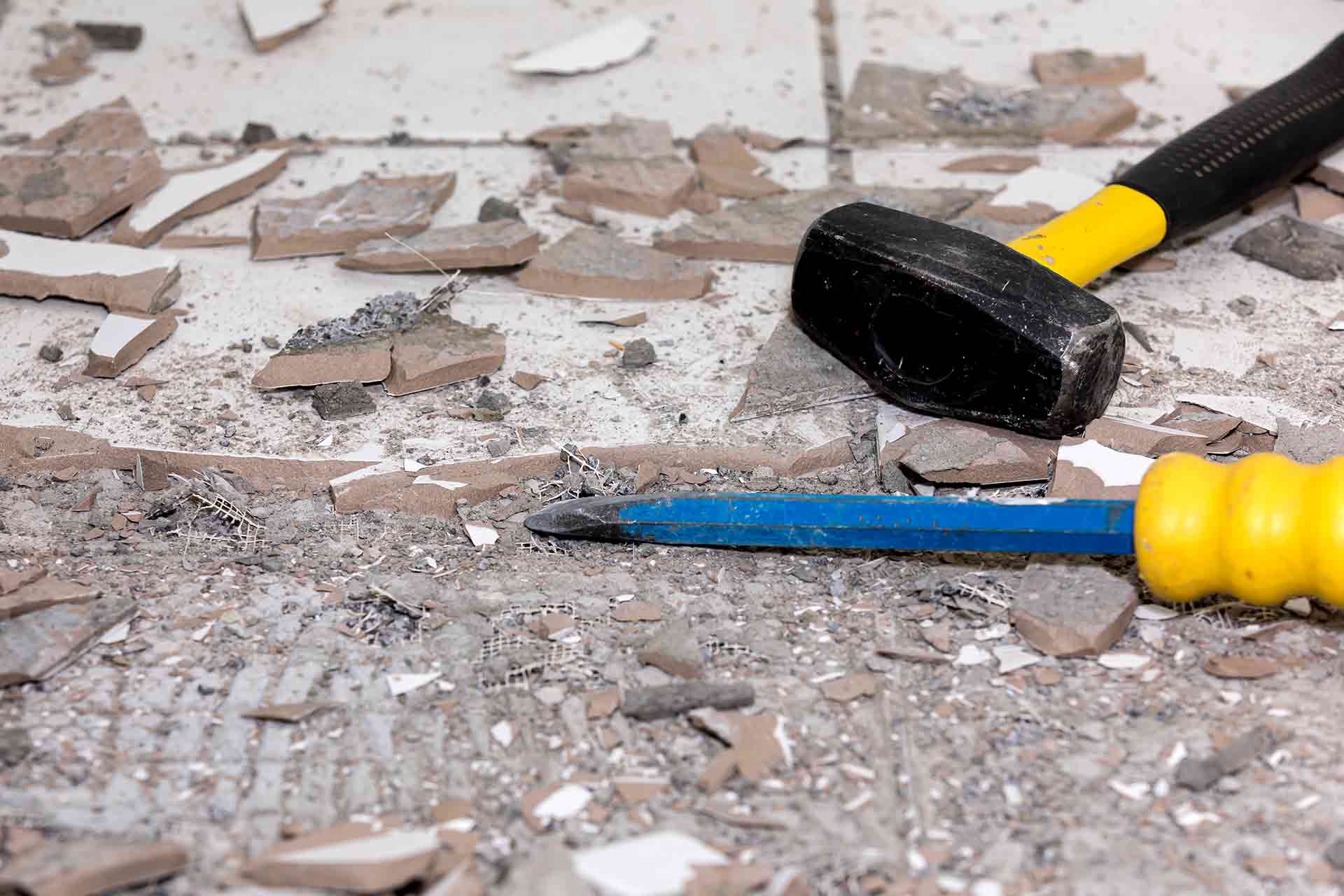Blog>Cost Guides>How much does tiling cost in 2025?
Last updated: 19 December 2024
How much does tiling cost in 2025?
We explore average tiling costs in the UK, including bathroom, kitchen, and floor tiling costs per m², factors that affect pricing, and tips to save money on your tiling project.
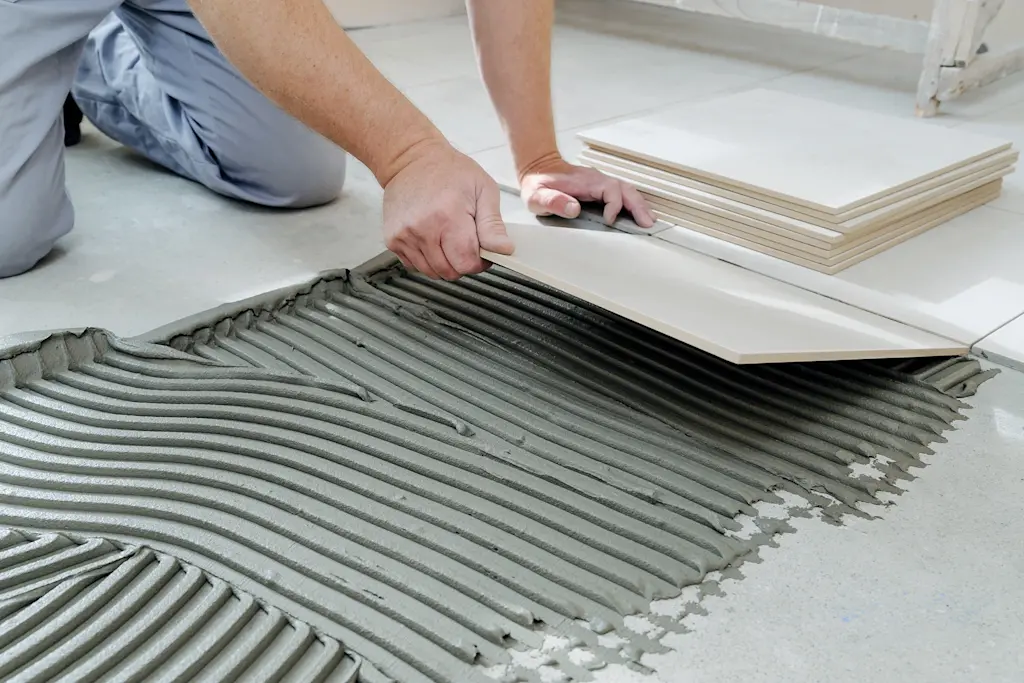
Fast Facts
Floor tiling costs average around £110 per m² - this includes standard tiles, materials, and labour
The average cost of tiling a bathroom (walls and floors) is between £800 - £1,200
A professional tiler tends to charge, on average, £50 per m²
Tiling is a versatile and durable way to enhance the look and functionality of your home. However, some people are nervous about how much tiling costs. After all, with so many different types of tiles sitting at varying price points, it can be hard to know where to start.
Whether updating a bathroom, revamping your kitchen, or refreshing your flooring, our tiling cost guide outlines all you need to know. Here, you'll find average tiling costs per m², the key factors affecting tiling costs, and tips for affordable tiling solutions.
Average tiling costs per m²
More often than not, tiling costs will be quoted per square metre. On average, tiling costs in the UK are around £110 per m². This includes standard tiles, materials, and labour.
| Cost of tiling | Unit | Lower range | Higher range | Average cost |
|---|---|---|---|---|
| Cost of tiles (floor) | per m2 | £20 | £400+ | £50 |
| Cost of tile adhesive & grout | per m2 | £10 | ||
| Tiling (labour only) | Per hour | £40 | ||
| Tiling (labour only) | Per day | £200 | £350 | £300 |
| Tiling 1 m2 of floor (labour only) | per m2 | £50 | ||
| Total cost to tile floor | per m2 | £110 | ||
| Cost of tiles (wall) | per m2 | £20 | £400+ | £50 |
| Cost of adhesive & grout (wall) | per m2 | £10 | ||
| Labour to tile 1 m2 of wall | per hour | £50 | ||
| Total cost to tile a wall | per m2 | £110 | ||
| Last updated: December 2024 Our costs are ballpark averages - get a local tradesperson to quote now | ||||
Cost of tiling a bathroom
The average cost to fully tile the walls and floors of a bathroom is normally between £800 - £1,200
Bathroom tiling (walls and floor) normally takes 3 - 4 days
For a standalone task, such as tiling around a bath, expect to pay in the region of £200 - £300
Tiling a shower typically costs between £250 - £900
Ceramic tiles are a popular choice for bathrooms. They're:
Lightweight
Water-resistant
Available in a variety of designs
An affordable tiling solution, at around £35 per m²
Porcelain tiles are typically more expensive than ceramic, meanwhile, mosaic tiles can be more fiddly to fit, which can increase labour costs.
20 beautiful bathroom tiles design ideas in [year]
Homeowners are throwing the gross greens and browns of the 1970s out and instead opting for elegant, subtle and sometimes bold bathroom tile design ideas. It's easier than ever to show off your artistic flare with this year's vast range of stunning bathroom tile trends. Whether intricate mosaic
Kitchen tiling costs
The average cost of tiling a kitchen wall is £110per m² - this includes standard tiles, materials, and labour
Tiling the area between the kitchen worktop and the wall cabinets costs, on average, £275
Tiling a kitchen floor normally costs around £800
Smaller jobs such as tiling a splashback may be quoted on a job-by-job basis rather than by the metre.
Ceramic, glass tiles, and natural stone are all popular options for kitchen walls.
25 eye-catching kitchen wall tiles ideas
Wall tiles can completely change the look of your kitchen. Here are 25 eye-catching kitchen wall tiles ideas you’ll love, whether you’re going for slick and modern or calm and classic.
Floor tiling cost
The average floor tiling cost in the UK is £110 per m² - this includes standard tiles, materials, and labour
Tiling a kitchen floor typically costs around £800
Stone tiles (e.g. granite or slate) average around £75 per m²
Mosaic floor tiles cost, on average, £100 per m²
Marble tiles are normally priced around £150 per m²
Victorian patterned tiles tend to cost in the region of £200 per m²
Floor tiles can be more expensive than wall tiles as they need to be robust and hard-wearing to cope with high foot traffic.
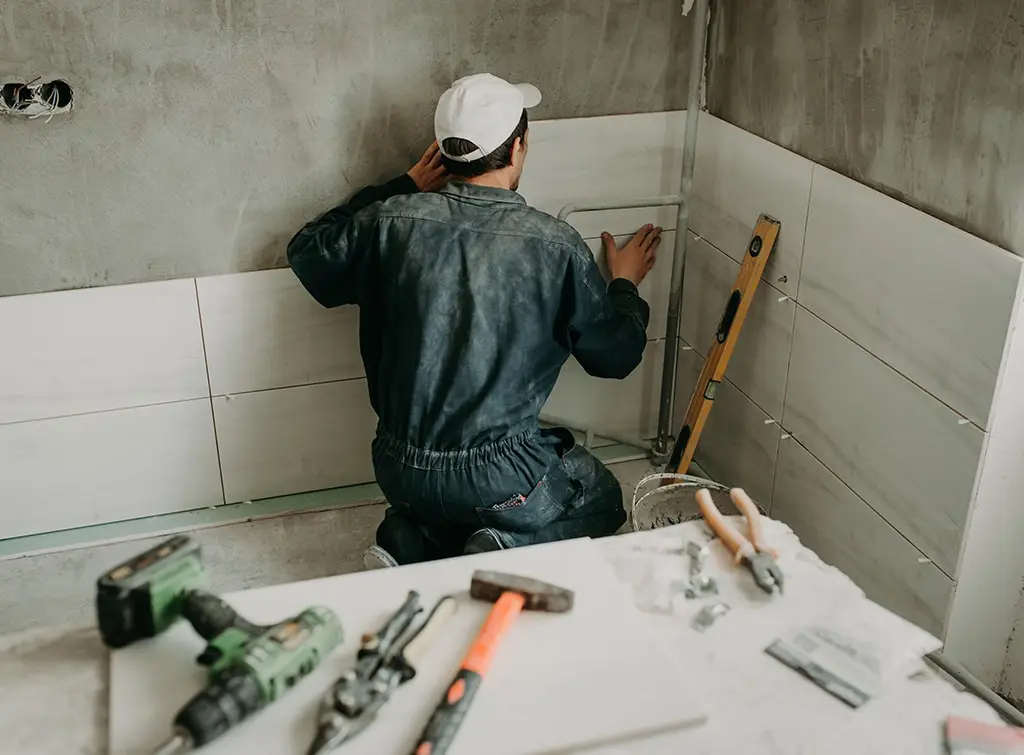
How much does a tiler cost?
As well as the cost of the actual tiles, tiler costs vary depending on their level of expertise and experience and your location. It's quite typical for a tiler to charge more in London and the South.
Tiling labour costs per square metre (UK)
A tiler may charge for jobs by the square metre, in which case, budget around £50 per m².
What does a tiler cost per hour?
Some tilers charge by the hour - £40 per hour is quite typical.
How much do tilers charge per day?
As a day rate, tilers tend to charge, on average, between £200 - £350 per day.
See the tradespeople we've checked and recommend for your job
Factors affecting tiling costs
Several variables can affect the cost of your tiling project, including:
1. The size of the area to be tiled
The size of the area being tiled may have some bearing on cost, but more important is how easy it is to lay the tiles.
If your tiler has to cope with challenging conditions, uneven walls, sloping surfaces, and tight spaces, this can increase labour costs.
2. The type of tiles you choose
The style, size, and quality of the tiles you choose will affect your total tiling costs.
An expensive tile such as marble, will cost more per m² in material costs than budget-friendly ceramic, for example.
Larger tiles can reduce labour costs because fewer pieces are needed to cover the same area. However, the tiles could cost more upfront and they will need a very flat surface for proper installation.
3. Complexity of the design
Bathroom tiling, including tiling around sanitaryware and units, should be straightforward.
Having said that, standard-sized, plain tiles are simpler to fit than elaborately patterned, or fiddly mosaic tiles.
The costs of tiling per square metre can increase if you want the tile pattern to continue around obstacles. Accurate pattern alignment can be a more labour-intensive process.
4. Location and labour rates
As outlined earlier, tiler rates vary across the UK.
However, experience also plays a role in the cost you're quoted for your tiling project. Expert tilers may be able to lay more tiles per day than others, so a day rate would provide great value.
On average, a tiler can usually complete 10-15m² of wall tiles or 8-12m² of floor tiles per day.
See the tradespeople we've checked and recommend for your job
Additional costs to consider
The costs in this guide provide an outline of the cost of buying and installing standard tiles. However, there are additional costs to budget for when embarking on a tiling project. These include:
Removing old tiles– Any existing tiles, plus adhesive and grout, will need to be removed before new tiles are installed. As a guide, budget between £800 - £900 but expect variances depending on the condition of the existing surface and how complicated thetile removal process is
Wall prep (plastering) – Your tiler will expect all surfaces to be prepared and ready for tiling before they arrive. Uneven or unfinished surfaces aren’t suitable for tiles and may result in delays in completing the job
Materials (such as grouting + adhesives)– While not expensive, your tiler will ask you to pay for the grouting and adhesives required for the job. Typical grout and adhesive costs are £10per m²
Tiling area - If you have a very small area to be tiled (less than 10m²) then the price per m² may increase, or you may incur a small surcharge
Underfloor heating – Tiling on top of underfloor heating can be challenging, so be prepared to pay more if you ask your tiler to do so
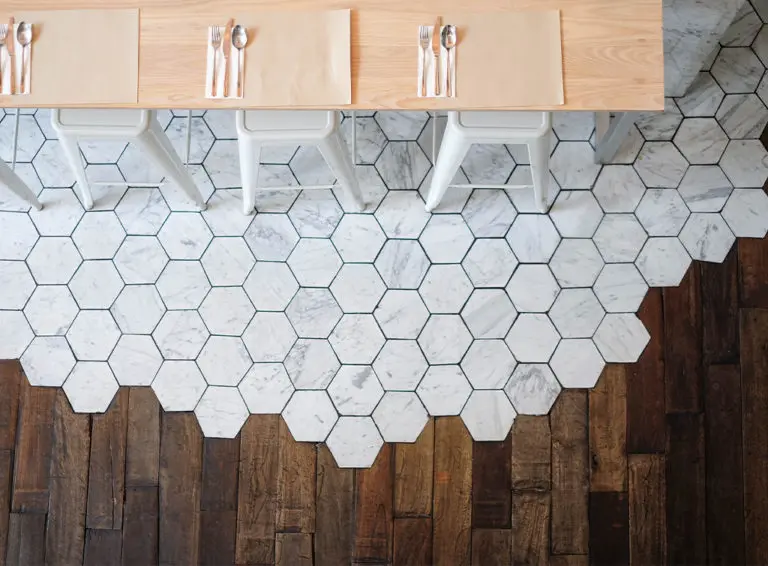
How to estimate with a tiling cost calculator (UK)
When you need to put a figure on the cost of your tiling project, a tiling cost calculator can help.
First, you need to start with the m² measurement of the area that needs tiling. As tiling can happen on either walls or floors, you need to have measured both the length and width.
Don't forget to factor in the labour costs for a professional tiler, and consider the cost of different tile materials.
Enter the rough area you need tiling (m2):
Choose material
Item | Avg Unit Cost | Your Cost |
|---|---|---|
£50.00 per m² | ||
£100.00 per m² | ||
£35.00 per m² | ||
£75.00 per m² | ||
£150.00 per m² | ||
£200.00 per m² | ||
£76.00 per m² | ||
£44.50 per m² |
Labour charges
Item | Avg Unit Cost | Your Cost |
|---|---|---|
£50.00 per m² |
Overall, your tiling could cost:
£0.00
Working with professional estimators, we collate cost estimates for the common home improvement and repair jobs in the UK. All the costs are estimates only and for accurate costs for your particular requirements, you are encouraged to reach out to professional tradespeople to receive a quote for your job. Read our disclaimer for more information.
Get a quote for your tiling project
One of the benefits of professional tiling is the top-quality, long-lasting finish you'll receive. See who comes highly rated in your area by searching your postcode, below. Alternatively, use our request a quote form to get quotes from approved tilers sent directly to your inbox.
See the tradespeople we've checked and recommend for your job
How to save on tiling costs
If you're keen to find more affordable tiling solutions, consider:
Simpler designs - A plain tile that doesn't need the careful precision of matching patterns across tiles will be quicker and cheaper to install
Ceramic tiles - They offer great value for money, they're durable and are available in a wide variety of designs
Look for deals - It's sometimes possible to find deals on online marketplaces, with people selling surplus boxes of tiles for a fraction of the cost
Scale it down - Tiles are a great option for wet areas - around the shower, bath, and sink splashback, but it's not essential to tile the whole room - save money by concentrating the tiles in a featured area
Compare quotes - Shop around for the best price on the tiles and the installation. Our request a quote form makes it easy to get quotes from several local tilers, sent straight to your inbox
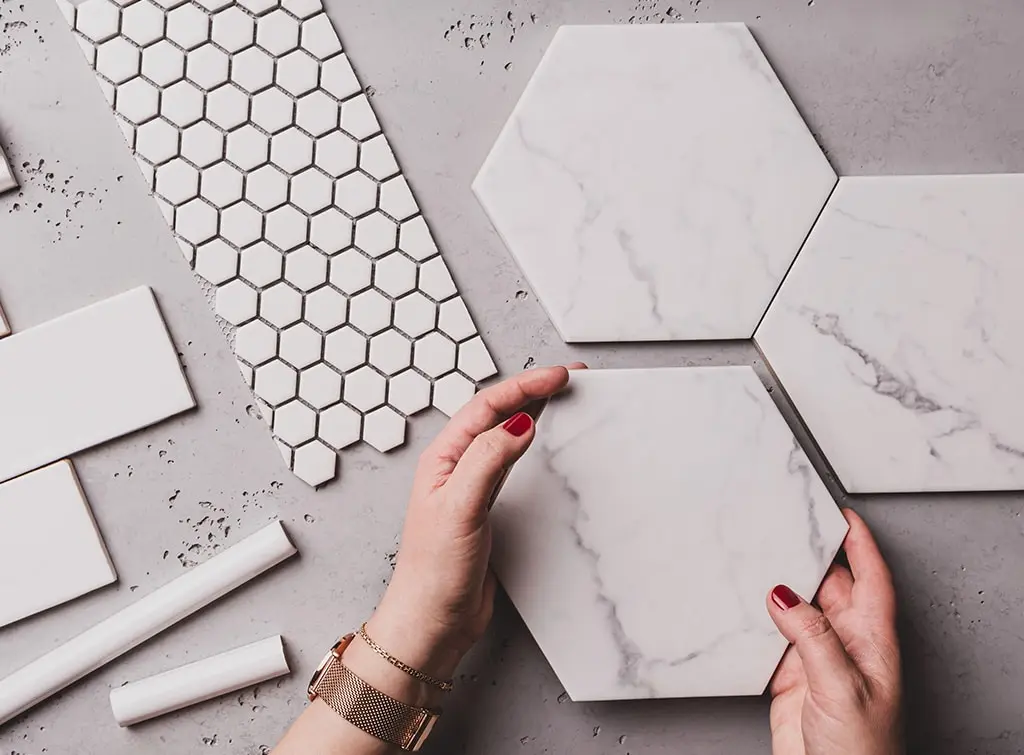
Top tips from a Checkatrade professional
Another benefit of professional tiling is the knowledge and expertise that comes with it. Here are some top tips from Checkatrade-approved tilers:
Tile colour: Sometimes dark tiles can make the room look smaller
Tile size: Try to avoid large format tiles in a small room, and small tiles in a large room
Grout selection: White or light grout is not always the best idea on floors, even if the tiles are that colour. High traffic areas, i.e. the kitchen sink, cooker, etc, will get dirty a lot quicker than the low traffic areas, and it will show
Machine cut tiles: Rectified tiles are cut instead of moulded, making the calibre (size) of the tile very precise, so a tile fixer can fix using a smaller grout joint, normally 2mm
Adhesives and grout selection: Speak to your tiler before buying adhesive and grout. A lot depends on the type of tile and the substrate they are being fixed to
Buy from the same batch: If buying your own tiles, ask the supplier if they're from the same batch. If not, you can get slight discrepancies, in colour, for example, which can be obvious once the tiles are laid

On Checkatrade, you'll only find trades who meet our high standards and pass up to 12 checks.
Why choose tiles?
Tiles have been used in UK homes for centuries, and for good reason:
Durability: Tiles are hard-wearing, resisting wear and tear, making them ideal for high-traffic areas of the home
Low-maintenance: They are easy to keep clean and require very little maintenance over their lifetime
Long-lasting: Professionally installed, quality tiles can last 50 years or more
Water-resistance: Ideal for moisture-prone spaces such as bathrooms, kitchens, boot rooms, and laundry rooms
Variety: Dream up a colour, style, pattern, or design and you'll find a tile option to suit your needs
Increased property value: High-quality tiling is a desirable asset and can add to property value
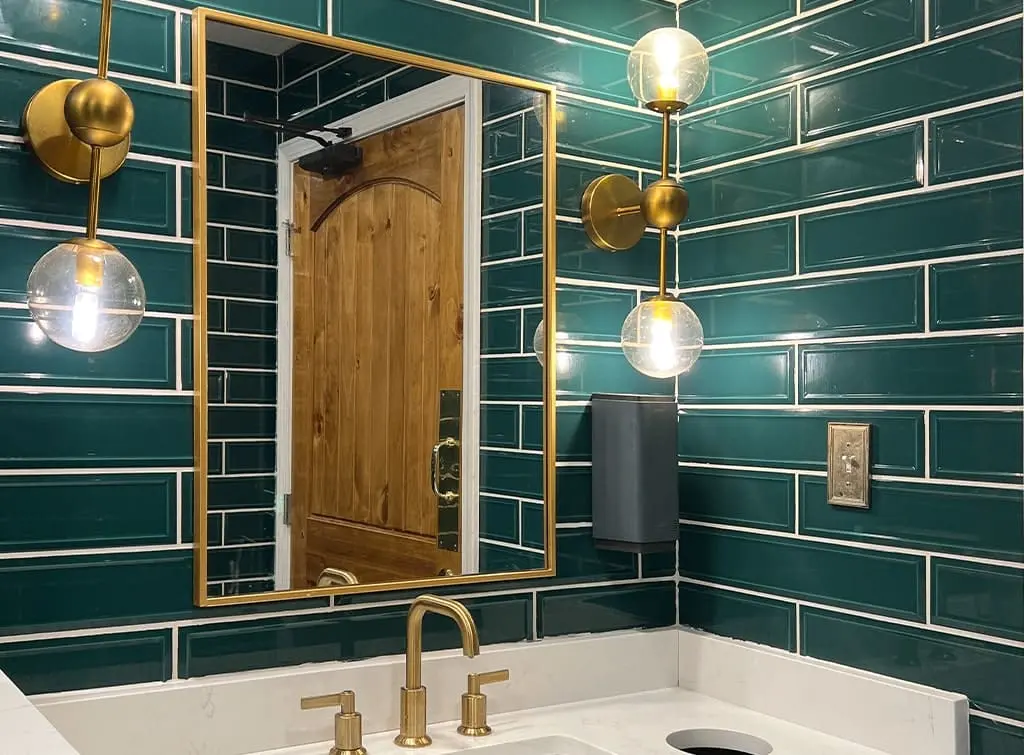
Tiling checklist
Measure the area to be tiled in m² then use this figure to price up the cost of tiles, materials, and labour
Budget for extras such as removing old tiles, surface preparation, and adhesive and grout
Suitability - Choose tiles best suited to your needs and budget - ensure durability for high-traffic areas
Costs can be affected by the type of tile, the complexity of the design, and local labour rates
Standard tiles, materials, and labour typically costs around £110 per m²
Get quotes from several tilers before you hire
Contact or pay a trade through Checkatrade and you’re covered by our 12-month guarantee of up to £1,000*

Find a professional tiler near you
A professional tiler will ensure your project is completed efficiently and to a high standard. It'll also help you to avoid potentially costly mistakes.
Find tilers that we've checked and approved in your area by searching your postcode, below.
See the tradespeople we've checked and recommend for your job
FAQs
How much does it cost to tile a bathroom in the UK?
To fully tile the walls and floor of a bathroom, expect to pay in the region of £800 - £1,200.
What is the average cost per square metre for tiling?
The average cost of tiling in the UK sits around £110 per m². This includes the cost of standard tiles, materials, and labour.
What affects the cost of hiring a tiler?
The type of tiles used, project complexity, and your location can all affect the cost of hiring a tiler.
How can I calculate the cost of my tiling project?
Measure the area to be tiled in m². Then multiply this by the tile and labour costs, and add any additional expenses such as grout and adhesive.
How long will it take to tile an average floor?
Small rooms like bathrooms can be done in a single day. If you require the skirting boards lifted and tiles laid underneath, or if there are kitchen appliances that need to be removed and then re-installed, then work can easily extend into an additional day. Larger rooms will take 2-3 days and irregular or rounded rooms will take the tiler longer to measure and cut tiles to fit, so budget for extra labour costs.
How can I work out the average number of tiles I need to buy?
To calculate how many floor tiles you need, multiply the width by the length of the room to be tiled (in cm). Then, multiply the length and width of a single floor tile (cm), then simply divide the area to be tiled by the area of one tile. This gives the number of tiles you need.
Buy an additional 15% to cover for damage or breakages during the tiling process, and to make sure you have extras if your tile goes out of stock.
How thick can I lay floor tile adhesive?
As a general rule, you should apply around 3-5mm of adhesive for tiling; however, different types and sizes of tile will have various recommendations. For the best results, hire a tiler who will do this all for you.
Can I use wall tiles for my floor?
You should not use wall tiles for the floor unless they specifically say that they can be used on a floor. Floor tiles are usually thicker than wall tiles to withstand more weight. Using wall tiles on the floor may result in broken tiles after a while.
Do I need planning permission to put new tiling down?
No, you don’t need planning permission to tile your floors.
What are the advantages of tiling floors?
Tiled floors are easy to maintain and have a good life span. They are great for areas that may need more cleaning than others, such as the porch area where you’re walking in with dirty shoes or the kitchen area that may be susceptible to accidents and spills.
What is the most common type of floor tile?
Ceramic tiles tend to be the most commonly used floor tiles in the UK as they are easy to maintain, and they come in a wide variety of colours and styles.
Should I tile a floor myself?
If money is tight or you love a challenge, you may be considering laying your own tiles. While you will need to invest in some special equipment, laying your own tiles can be cheaper than paying a professional, but it’s a highly skilled job.
Professional tilers spend years perfecting the ability to lay tiles uniformly, maintaining straight lines and patterns. If you take pride in your home or are looking to sell it in the near future, we recommend using the services of a professional tiler near you for the best finish.
More Cost Guides
More Tiler - Tiling Articles
See the tradespeople we've checked and recommend for your job
